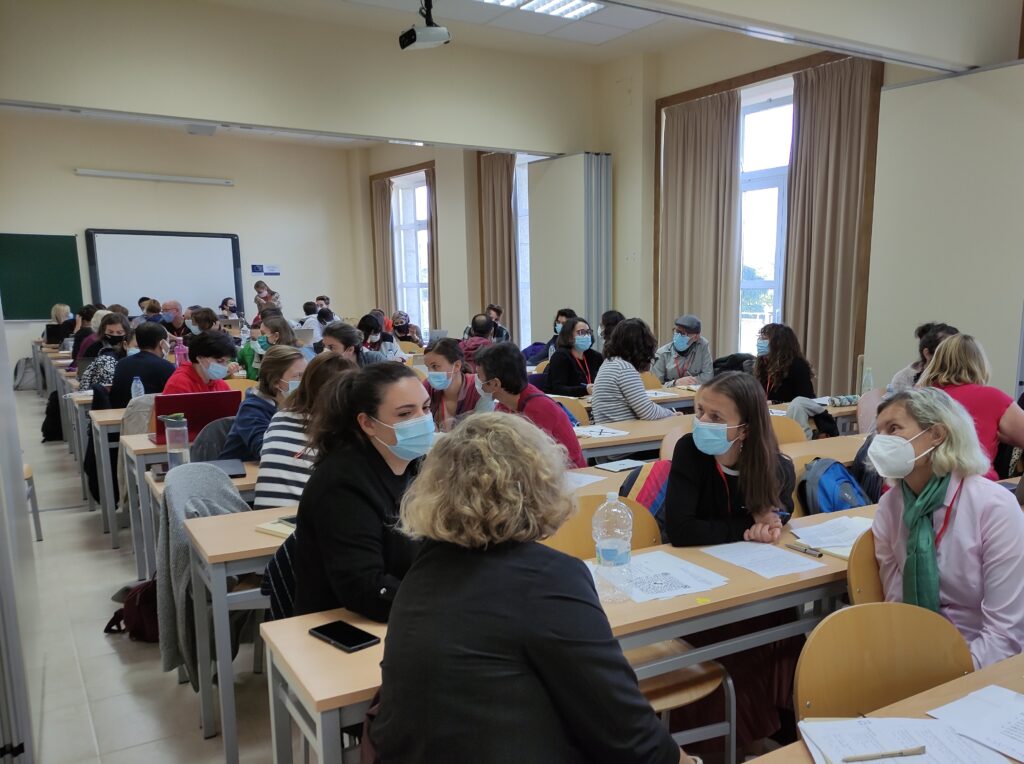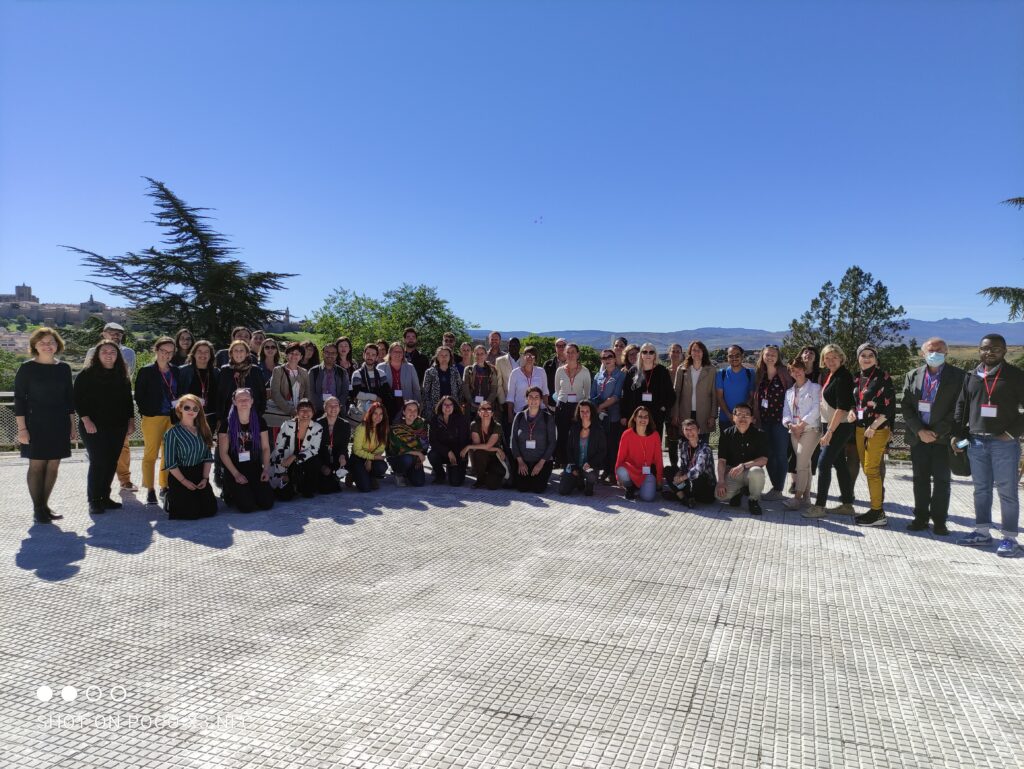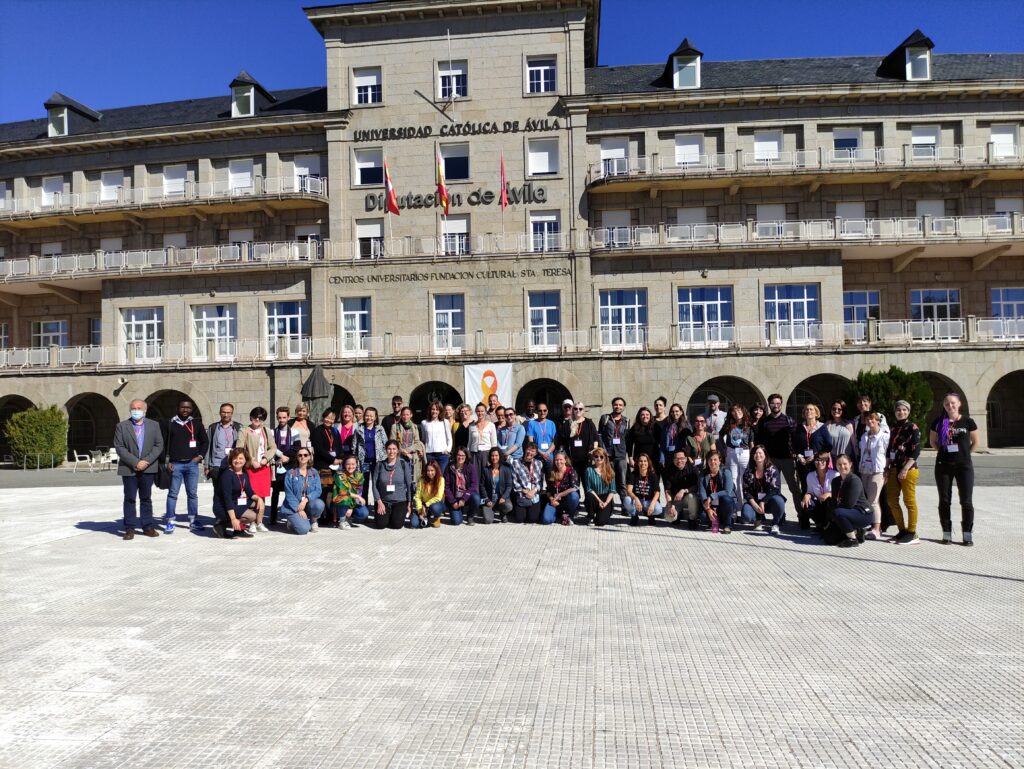The first LITHME training school took place in Ávila, Spain, between October 4 and 8. More than 50 junior and senior researchers traveled to this beautiful, quiet town about 100 km north-west of Madrid. They came to learn about language technology, the LITHME network, and each other.
The entire week was filled with informative presentations by working group leaders and industry partners. The trainers sparked many stimulating discussions. The trainees were encouraged to think big, think outside the box, become visionaries and philosophers, while keeping a critical and practical outlook on the role of language technology in our lives.
The private sector guest speakers showed many practical use cases of language technology and demonstrated its benefits. Representatives from expert.ai (AI and NLP solutions), glifing.com (reading assessment platform), naturalvox.eu (text and speech analytics), HiTZ (Basque center for Language Technology), and elhuyar.eus (MT, ASR and Text-To-Speech in Basque) showcased various speech and text processing applications, such as automatic customer service solutions, educational assistance, subtitling, and many more.
At the same time, the working group leaders led philosophical and critical discussions about the dangers and benefits of language technology. Working Group 1 (‘Computational Linguistics’) kick-started the week with an open-ended discussion about what language technology will offer us in 2030. Working Group 6 (‘Ideologies, Beliefs, Attitudes’) sensitized the audience to the potential pitfalls of transferring digital tools to other cultures with a practical and deceptively easy exercise of localizing a cookbook.

Will all translators eventually become post-editors? Working Group 2 (‘Language and Law’) argued that despite recent advances, machine translation is still unreliable when applied to legal texts. The lexical and syntactic specificities of legal language as well as its cultural embeddedness are complicated for the AI. Working Group 3 (‘Language Rights’) discussed the shortcomings of the Charter on Regional and Minority Languages and pointed out the paradox of language technology helping to overcome barriers while at the same time increasing disparities.
Working Groups 4 (‘Language Diversity, Vitality and Endangerment’) and 8 (‘Language Variation’) drew everyone’s attention to difficult issues of language endangerment and the precarities of its vitality and variation. Can technology help save languages and sustain language diversity? While media has proven to have a detrimental effect on language variation through standardization, modern technology also fosters growing digital communities and enables new registers. Participants had a lively exchange about the linguistic status quo in their own countries.
Another discussion – this time on the use of technology in a classroom – was opened by Working Group 5 (‘Language Learning and Teaching’). From a smartphone to virtual reality, trainees debated the benefits and the drawbacks of different devices as well as their role in adaptive learning. ‘All of us here are language professionals’ was the introduction to the discussion in Working Group 7 (‘Language Work, Language Professionals’), on translation as human-computer interaction. The trainers also revealed some secrets about the use of technology by conference interpreters.

Throughout the week, trainees presented their research in the pecha-kucha format, which allows only 6 minutes and 40 seconds per presentation. Each person had to prepare 20 slides but only spend 20 seconds on each slide. Pecha-kucha is a fun but demanding exercise which brought all the trainees to a level of slight perspiration regardless of their academic level. Technical issues, masks, and pesky flies added to the challenge. But ultimately, it was an equalizing and bonding experience and a great way to learn about everyone’s work. An idea for a T-shirt started circulating among the participants starting on day two: ‘I survived LITHME pecha-kucha, Ávila 2021’.
Aside from thought-provoking sessions and the thrills of pecha-kucha, attendees had plentiful opportunities to network. Perhaps it was the pandemic, the unyielding quotidian pressures of economic and ecological issues, or maybe the magical charms of Ávila, but people legitimately seemed to rejoice in getting to know each other even more than usual. Practical difficulties only fueled more fruitful conversations, be it a daily 3+ km hike to have lunch, a train strike, or the infamous ¡wifi, caramba! ‘I’ve never felt such unity after an event before,’ said one of the participants. ‘It feels like Eurovision,’ claimed another. Many expressed a desire to return, to repeat the event, to stay in touch, and to see each other again.
The post was written by Anastassia Shaitarova (University of Zurich), a trainee at the training school and a social media editor of LITHME.

